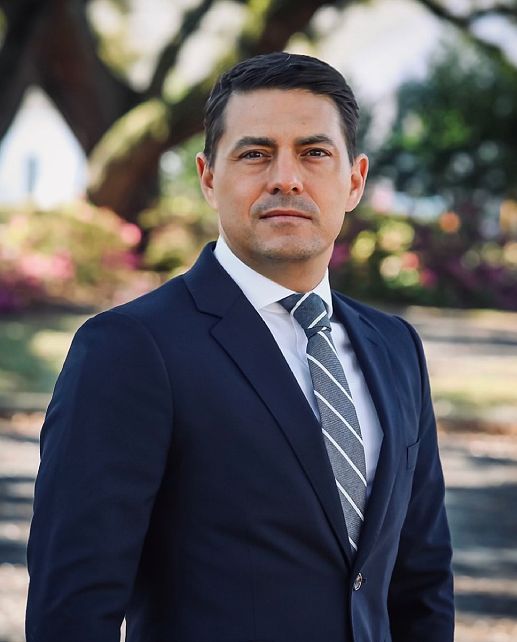
When facing embezzlement charges, understanding the law and its implications becomes crucial.
Embezzlement is a serious accusation with significant legal consequences, particularly when categorized as a felony.
This charge involves misappropriating or stealing funds placed in one’s trust or belonging to one’s employer.
The legal atmosphere surrounding embezzlement can be complex, making it vital for those accused to grasp the essentials of embezzlement charges, the potential penalties upon conviction, and the specific circumstances under which embezzlement is considered a felony, especially within North Carolina.
For a free consultation with an experienced Carteret County felony defense lawyer, give us a call at (252) 728-1373 or send an online message today.
Key Takeaways
- Embezzlement involves misusing money or property that someone was legally entrusted with, making it different from ordinary theft.
- Embezzlement is a felony in North Carolina when the value exceeds $1,000, and it is always a felony when committed by public officials or employees of financial institutions.
- Penalties depend on the value involved: Class C felony for $100,000+ and Class H felony when below $100,000.
- Defenses may include lack of intent, mistake, or insufficient evidence, all of which must be carefully evaluated by an experienced defense attorney.
- A felony conviction carries severe consequences, including prison time, fines, and long-term damage to employment and reputation.
- Hiring a skilled NC embezzlement attorney is crucial, as they can challenge the prosecution’s case and work to reduce or dismiss charges.
Jump to a Topic
Understanding Embezzlement Charges
Embezzlement is distinct from other types of theft due to its breach of trust component.
This offense occurs when someone who was legally given access to someone else’s money or property uses it for their own personal gain.
The critical element here is the lawful possession turned unlawful use, differentiating it from larceny or simple theft, where there is no initial legal access to the property.
In North Carolina, embezzlement is taken very seriously and is explicitly outlined in the North Carolina General Statutes.
The law describes embezzlement as the fraudulent conversion of property by someone in a position of trust, such as an employee or public official. This encompasses many actions, from a cashier skimming from the till to a financial advisor misappropriating investment funds.
Is Embezzlement a Felony in NC?
Embezzlement is a felony if the property value exceeds $1,000. Otherwise, it is classified as a misdemeanor.
However, most embezzlement charges in NC are treated as felonies due to the breach of trust and the potential for significant financial damage.
The law in North Carolina clearly distinguishes between the role of the accused and the type of property embezzled.
For instance, embezzlement by public officers, employees, and officers and directors of financial institutions is automatically considered a felony, regardless of the amount involved.
What Are the Penalties for Embezzlement
Classify embezzlement as a Class C felony if property value is $100,000 or more, and as a Class H felony if below $100,000 under NC Criminal Laws.
Defending Against Embezzlement Charges
Building a defense against embezzlement charges involves a comprehensive understanding of the law and a strategic approach tailored to the case’s specifics.
Potential defense strategies may include:
- Demonstrating a lack of intent to commit fraud, and
- Proving that the actions resulted from a misunderstanding or mistake.
Challenging the evidence presented by the prosecution as insufficient or inaccurate. Anyone facing such charges should consult with a legal professional specializing in criminal defense and with experience with embezzlement cases.
A skilled attorney can navigate the complexities of the law, challenge the prosecution’s case, and work to secure the best possible outcome for the defendant.
Embezzlement charges carry significant legal and personal consequences, especially when classified as felonies.
Understanding the legal framework surrounding embezzlement in North Carolina, including the factors that influence the severity of charges and potential penalties, is essential for anyone facing such accusations. With the right knowledge and legal support, navigating these challenges and achieving a favorable resolution is possible.
Contact an Experienced North Carolina Embezzlement Attorney Today
When is embezzlement a felony in NC? Always, which is why it is essential to have a skilled North Carolina criminal defense attorney in your corner at every step of the way.
At the Tetterton Law Firm, PLLC, we’ve helped countless clients avoid the consequences of an embezzlement felony being added to their record.
We understand the best embezzlement defenses and how to use them to create a strategic defense designed to minimize–or eliminate–your exposure.
To learn more about how we can help you defend against the charges you face, and to schedule a free consultation, please call (252) 728-1373 or connect with us through our secure online contact form.


